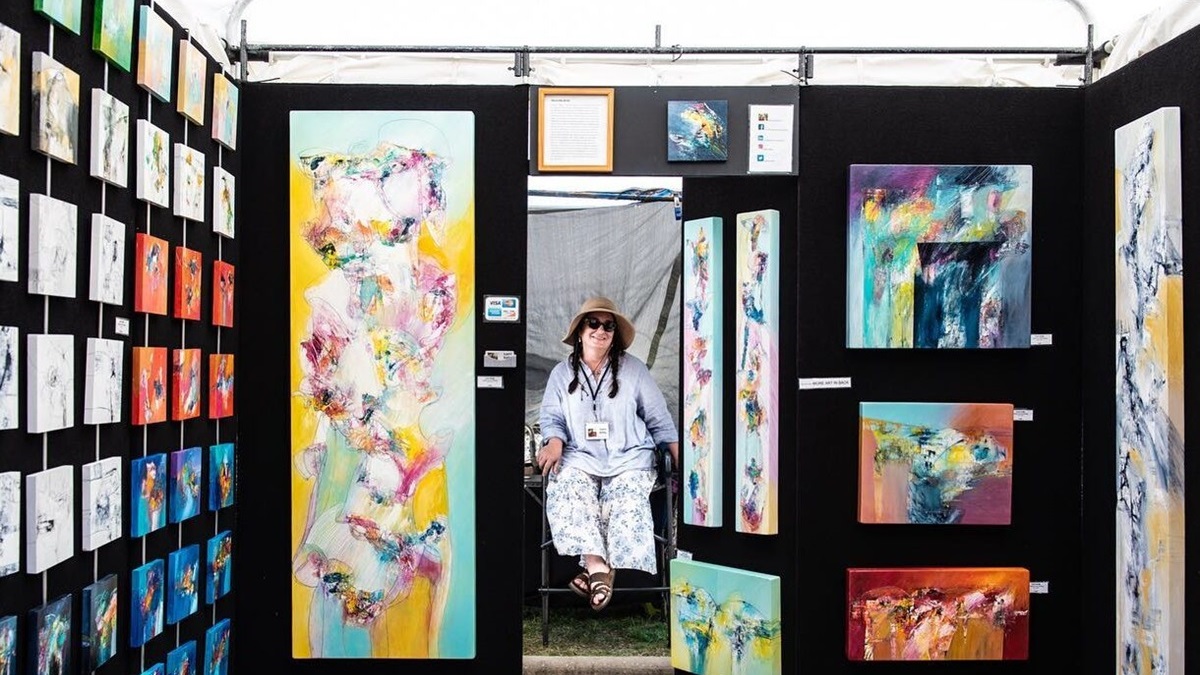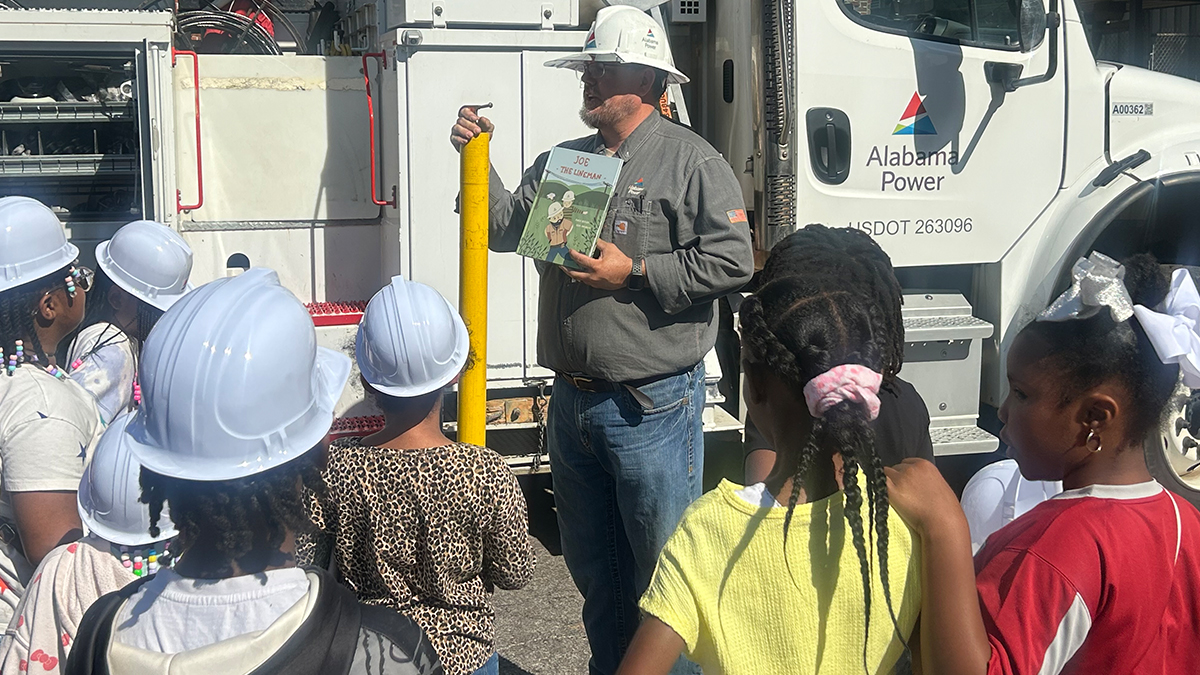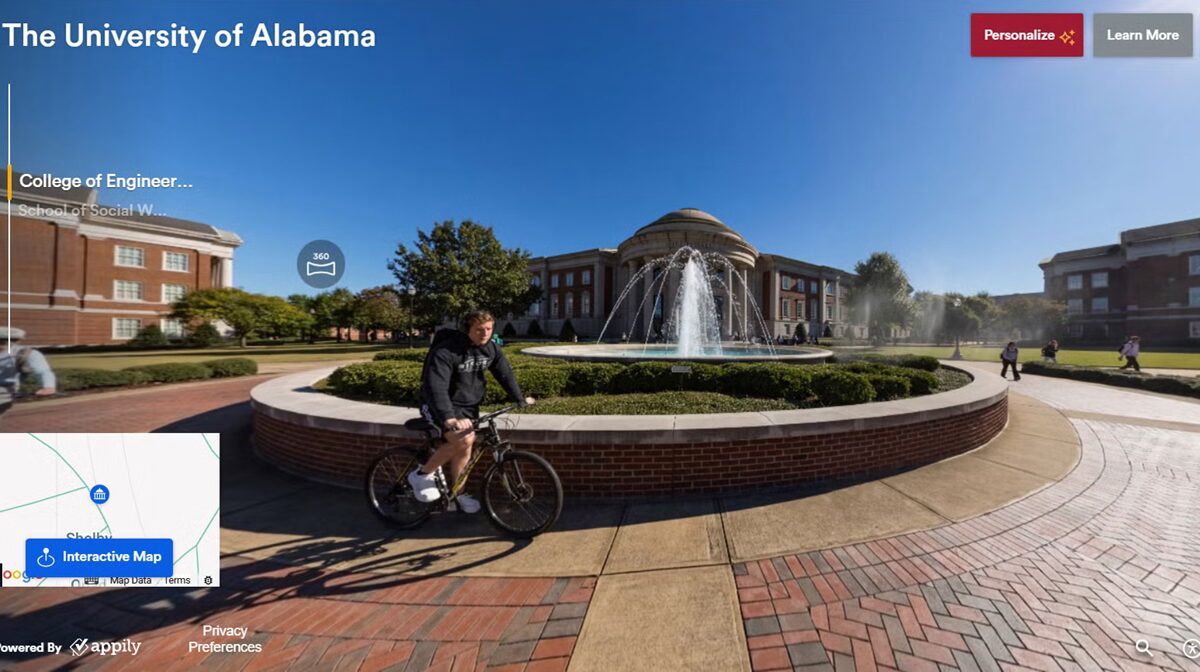Birmingham commemorates victims of 1963 bombing of Sixteenth Street Baptist Church

Birmingham's Sixteenth Street Baptist Church during the commemoration of the four Black girls who died in the Sept. 15, 1963, bombing of the church and the two Black boys who were victims of separate racially motivated murders in the city the same day. (AP Pool Photo / Butch Dill)
The girls would be in their seventies now — the four girls whose lives were ended by the bombing of Birmingham’s Sixteenth Street Baptist Church on Sunday morning, Sept. 15, 1963. That fact was on the mind of U.S. Supreme Court Associate Justice Ketanji Brown Jackson, the featured speaker at the 60th anniversary commemoration of the most horrific event in the city’s history.
“I felt in my spirit that I had to come,” Jackson, the first Black woman to serve on the nation’s highest court, told the crowd that filled the church’s sanctuary. “I have come to Alabama with a heart full of gratitude, for unlike those four little girls, I have lived.
“Those girls were just getting started. They could have broken barriers. They could have shattered ceilings. They could have grown up to be doctors or lawyers or judges appointed to serve on the highest court in our land.”
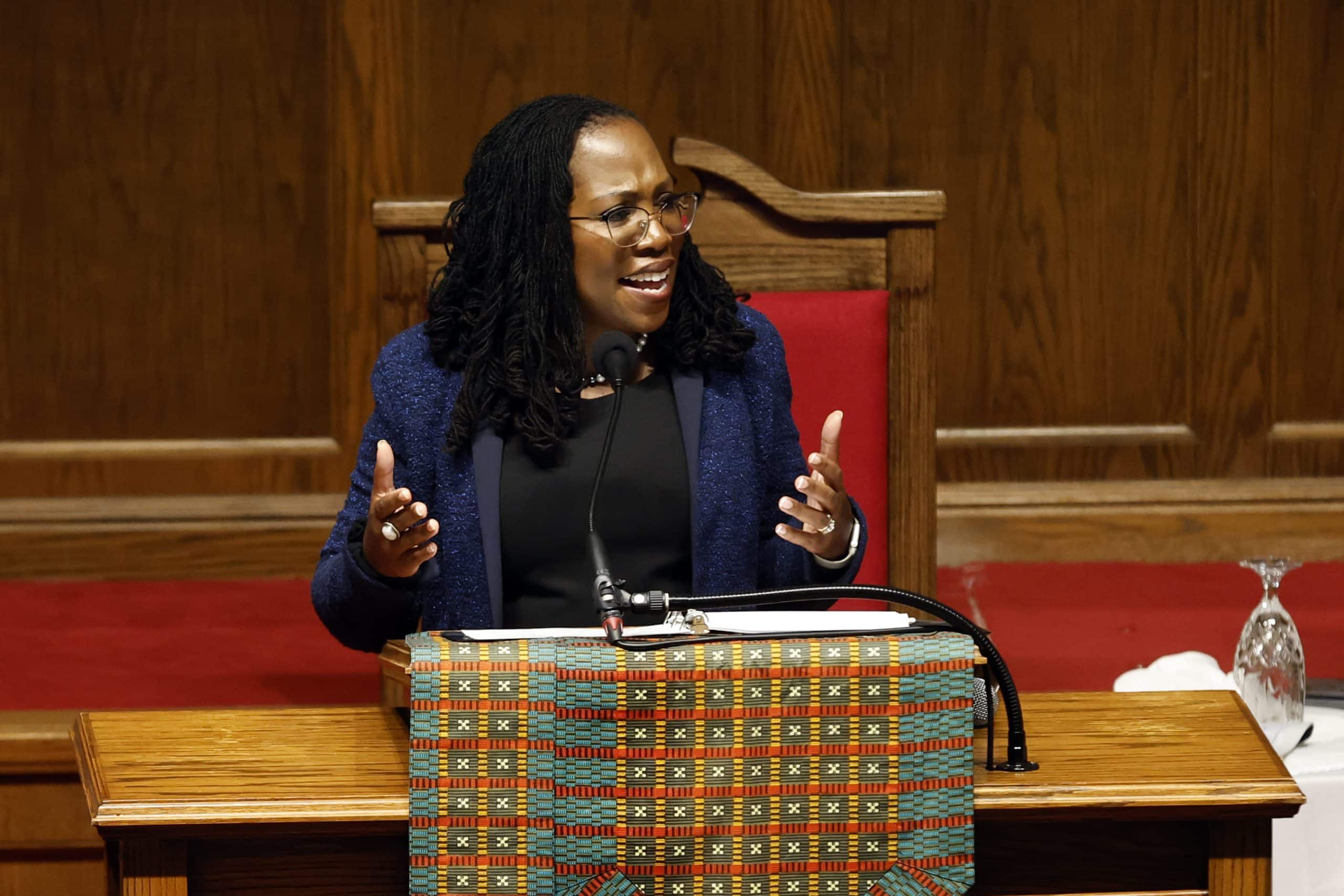
U.S. Supreme Court Justice Ketanji Brown Jackson speaks at the 60th commemoration of the 16th Street Baptist Church bombing. (AP Pool Photo / Butch Dill)
Addie Mae Collins, Carole Robertson and Cynthia Wesley, all 14, were killed, along with 11-year-old Denise McNair, when the blast from 19 sticks of dynamite planted outside the church by Ku Klux Klansmen ripped through the wall of the basement restroom where the girls were preparing to serve as ushers during the scheduled “Youth Day” church service. They had stopped in the restroom after their Sunday school lesson, titled “A Love that Forgives.”
The program last Friday also commemorated two other Black youths killed by racially motivated violence that same afternoon. While riding on the handlebars of his brother’s bicycle, Virgil Ware, 13, was killed by a rifle shot fired by a white teenager. Johnny Robinson, 16, died from the blast of a shotgun fired by a Birmingham police officer investigating a reported incident between white and Black youths.
Prior to Jackson’s remarks, several speakers offered thoughts on the commemoration and its meaning 60 years later. Rev. Arthur Price Jr., the pastor of Sixteenth Street Baptist, spoke of the need for remembrance, reflection and reconciliation. He noted that Jackson’s presence provided particular cause for contemplation of “what those girls might have been had their lives not been taken from them, had they been allowed to flower and grow and thrive.”
“It took the most valuable and the most vulnerable to galvanize a generation and motivate a movement to make the bitter days of Birmingham better,” Price said, to a chorus of “amens” from the crowd.
Valerie Reese Harris, professor of music and director of choirs at Miles College, reflected on forgiveness. The Miles choir, together with the Carlton Reese Memorial Unity Choir, provided the day’s musical accompaniment. Dr. Christopher Hamlin, pastor of Tabernacle Baptist Church and the former pastor at Sixteenth Street Baptist, paid tribute to the late Rev. John H. Cross Jr., who pastored the church at the time of the bombing.
Birmingham Mayor Randall Woodfin spoke of the role of government in bringing about social justice, contrasting that with the actions of city officials during the civil rights era. He also acknowledged the presence at the commemoration of “the fifth little girl,” Sarah Collins Rudolph, the sister of Addie Mae, who was with the other girls when the bomb exploded; she survived, though with severe injuries, including losing an eye.
U.S. Rep. Terri Sewell noted the progress in Birmingham and across America that was spurred in reaction to the deaths in Birmingham, but added, “Progress is elusive, and we have to fight to hold onto it.”
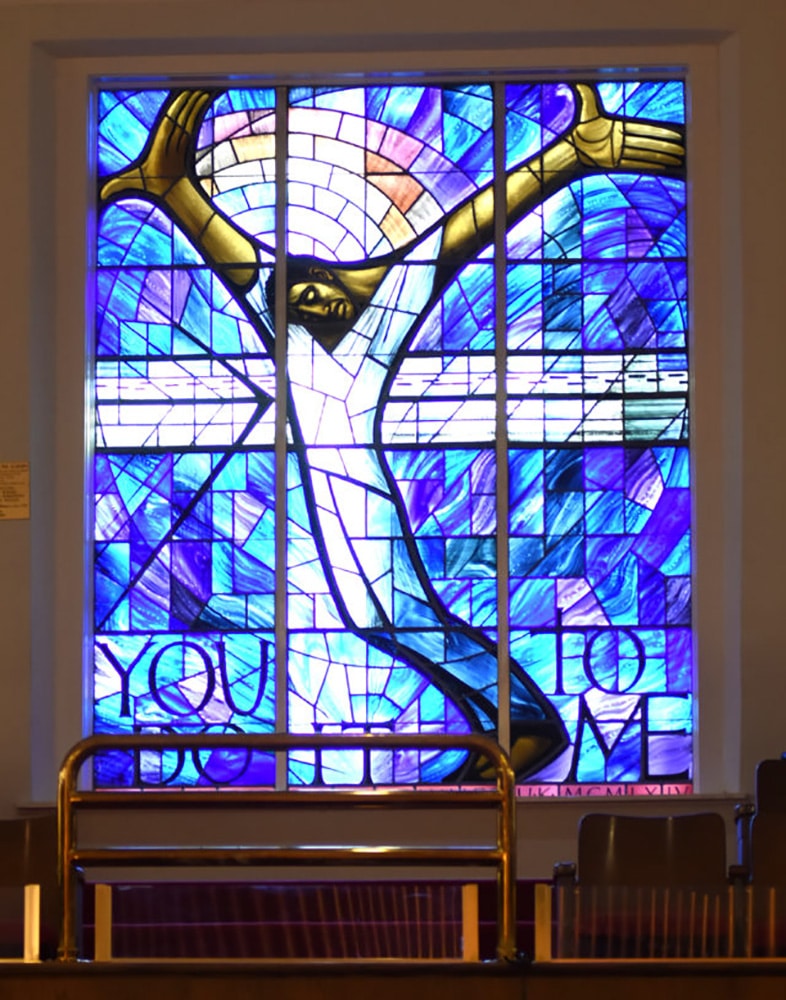
The Wales Window at Birmingham’s Sixteenth Street Baptist Church, donated by the people of Wales in 1965. (Birmingham Times)
A special guest at the commemoration was Vaughan Gathing, minister of economy for the nation of Wales. Following the bombing, the people of Wales contributed to the creation of a stained-glass window depicting a Black Christ in a posture of crucifixion, which was completed and donated to Sixteenth Street Baptist in 1965. Gathing, the first Black government minister in Welsh history, pointed to the window over the church’s rear balcony as an enduring expression of what he called “faith in unity.”
“It really is a great source of pride for our nation that the Wales Window remains a source of strength for your community,” said Gathing. “Those that contributed to the window saw your grief and the cruelty that caused it. The instinct to reach out was both simple and powerful. It was driven by a deep realization that the welfare of each of us is bound up in the welfare of all of us.”
Also in attendance were Bill Baxley and Doug Jones, the two men who won convictions of Klansmen who perpetrated the bombing. As Alabama’s attorney general in 1977, Baxley reopened the investigation into the bombing, which had been closed by the FBI in 1968, and successfully prosecuted Robert Chambliss, one of the men involved. Nearly a quarter-century later, as a U.S. Attorney appointed by President Bill Clinton, Jones initiated indictments that resulted in the convictions of Klansmen Thomas Blanton and Bobby Frank Cherry.
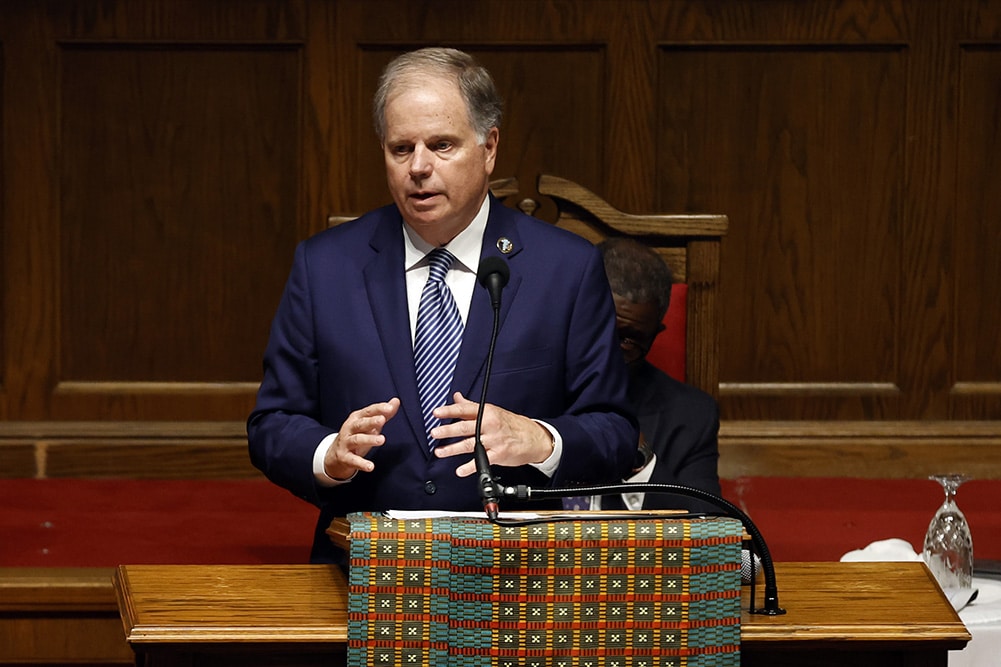
Former U.S. Sen. Doug Jones introduces Justice Ketanji Brown Jackson on Sept. 15. (AP Pool Photo / Butch Dill)
Jones represented Alabama in the U.S. Senate from 2018 to 2021. In 2022, he was part of the team that recommended Jackson to President Joe Biden for appointment to the Supreme Court. Jones introduced Jackson at the 60th anniversary commemoration, saying that her presence on the court “represents the hope, the possibilities of the American dream.”
In her remarks, Jackson paid tribute to her parents, schoolteachers who ensured that she was steeped in Black history, including Birmingham’s role as “ground zero” of the civil rights movement, as well as events in Montgomery and Selma. She informed her listeners that this was her first visit to Alabama, adding it was important for her to come to help find answers to questions that arose from her experience in becoming the first Black woman to serve on the nation’s highest court.
“What has happened, I think, is that all of the attention to my race and my gender and the historical nature of my appointment has caused me to develop an intense yearning to better understand why,” Jackson said. “Why have our nation’s highest reaches been out of grasp for so many? Why has the opportunity to participate fully in the promise of America been kept from African Americans for so long? Why has it taken 232 years and 115 prior appointments for a Black woman to serve on the Supreme Court?”
While the “great struggle for equality continues,” Jackson said, there are also “markers of our nation’s continuing progress,” such as the 59 Black women who currently serve as federal judges. But building on that progress, she cautioned, is reliant on remaining always aware of our history — both good and bad — and on ensuring that future generations inherit that knowledge.
Birmingham’s ongoing commemoration of the church bombing and the changes it spurred are part of that, she said.
“It not only preserves the history,” Jackson said. “It brings to light for a new generation the daily struggles and injustices of the not-so-distant past. Birmingham’s efforts are part of that long arc bending toward justice, and I hope that they will be a model for similar efforts throughout the country.”





